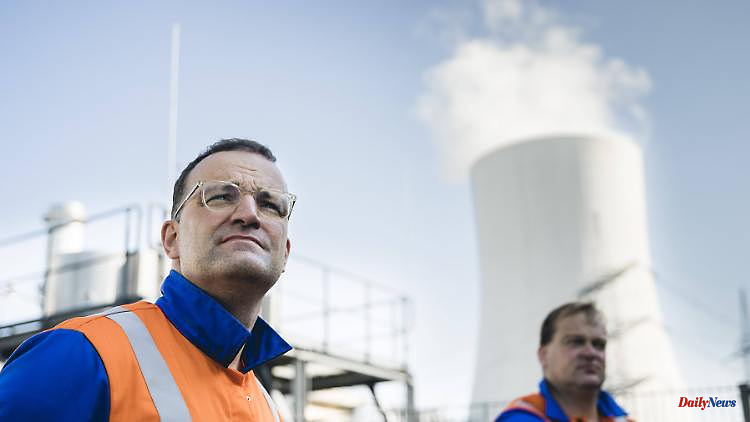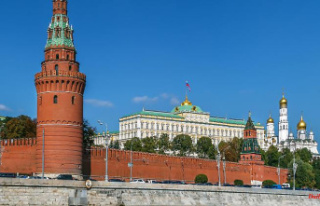The Union wants to put the gas levy planned for October in the Bundestag for a vote. Group Vice Spahn speaks of a "chaos levy", CDU General Secretary Czaja calls it a "big mistake". The federal government hopes that companies will voluntarily do without.
The Union sharply criticizes the planned gas levy and wants to make it an issue in the Bundestag. Union parliamentary group leader Jens Spahn spoke of a "chaos levy", CDU General Secretary Mario Czaja described it as a big mistake. Gas customers are to pay the gas surcharge of a good 2.4 cents per kilowatt hour from October. The money is intended to relieve companies that have to buy expensive gas elsewhere because of the reduced deliveries from Russia in order to fulfill their contracts - the companies are to be reimbursed 90 percent of the resulting additional costs from October. This should prevent company bankruptcies and ultimately delivery failures.
"The gas levy is a chaos levy. It is poorly made in terms of craftsmanship, and the citizens also use their levy to secure the profits of some energy companies," Spahn told the "Spiegel". "This is redistribution from bottom to top. That's why we as a Union will apply for the lifting of this levy in September and put it to the vote. Every member of parliament can show where they stand on this issue." CDU General Secretary Czaja said in Berlin that the gas surcharge is a problem, especially for people with small and medium-sized incomes, as well as for small and medium-sized companies. He also complained that some of the levy should go to companies that recently made high profits. "The levy should be abolished," Czaja summed up.
The head of the Institute for Macroeconomics and Business Cycle Research (IMK), Sebastian Dullien, was also critical. From his point of view, the shareholders of the companies that are now benefiting from the gas surcharge should have been asked to pay more, he told the Watson portal. He would also have found refinancing from general tax funds "more effective than the higher levy". The CEO of the Leverkusen-based plastics group Covestro, Klaus Schäfer, called the levy "highly immature and completely unfair".
Twelve companies have registered a claim to money from the levy; At the same time, RWE announced that it would not make a payment for the time being. The claims total around 34 billion euros - a large part of which is attributable to the ailing gas importers Uniper and Sefe (formerly Gazprom Germania). However, there are also companies on the list that are not currently in economic difficulties.
The federal government expressed the hope that other companies would voluntarily forego money from the levy. With regard to RWE, government spokesman Steffen Hebestreit said in Berlin that it would be "a fine move" if other companies "behaved similarly". However, the government cannot dictate this to them. "The federal government stands by the gas levy and the design of the gas levy," Hebestreit emphasized at the same time.
Economics Minister Robert Habeck also defended the levy. The Greens politician made it clear in Berlin that the levy serves to ensure security of supply. "It is undisputed that this is a painful operation, with unreasonable demands." The socio-political "imbalances" would have to be compensated for by other measures. Those who cannot afford the high energy costs and the levy must be financially supported in such a way that energy does not push them into poverty. The coalition is currently discussing another relief package. In response to the criticism that some companies are not financially dependent on the levy, Habeck said this was the result of uniform legislation. The profits of these companies must be taxed elsewhere.












